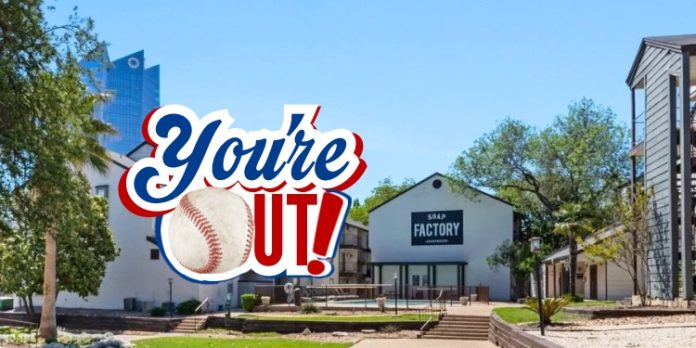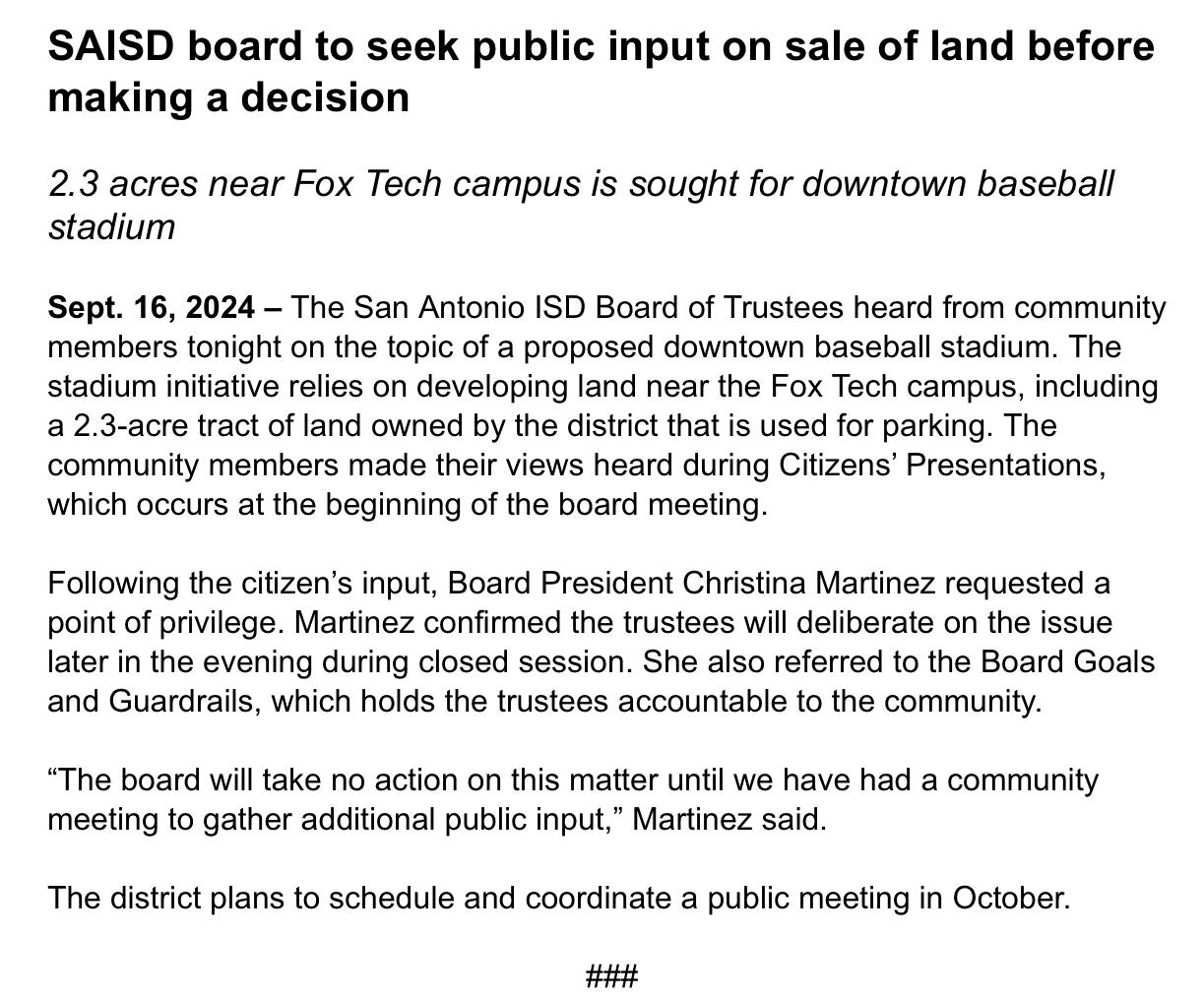New Downtown Ballpark for San Antonio Missions Approved In 9-2 City Vote, Despite Community Opposition, Soap Factory Residents to Be Displaced
The San Antonio City Council has approved a $160 million downtown stadium for the Missions baseball team, despite widespread opposition from residents of the Soap Factory Apartments and many others in the San Antonio community. The plan passed 9-2, with Councilmembers Teri Castillo and Jalen McKee-Rodriguez dissenting, voicing concerns over the displacement of low-income residents. Councilwoman Melissa Cabello-Harvda (D6) voted ‘YES,’ which is ironic given her recent statement just weeks ago criticizing the city council for not listening to ‘Citizens to Be Heard.’ That move certainly backfired.
Rushed Decision Draws Criticism from Displaced Residents
Residents like Brooklyn Ramos criticized the rushed nature of the vote, stating, “We are humans, not a business deal.” The decision came just hours after the displacement plans were shared with tenants. Residents were given the relocation plan just hours before the vote, leaving them with little time to respond or organize prompting concerns over how the redevelopment would impact their lives and if they were involved in the decision-making process.
Funding and Long-Term Impact on Taxpayers
The stadium will be funded through both public and private sources, including the Houston Street TIRZ (Tax Increment Reinvestment Zone). Though the city promises a $500,000 relief fund for displaced residents, critics warn of gentrification and eventual tax burdens on residents (which will be unavoidable). While the development is ‘expected’ to bring economic growth, some worry that it out prices locals and raises housing costs. Focusing on tourism seems like the smarter approach. Revitalizing Rivercenter Mall, which sits half-empty along the nation’s most popular River Walk, and capitalizing on the massive Alamo renovations could significantly boost the city’s appeal. Why aren’t we already maximizing San Antonio’s tourism potential? We need to do better.
Concerns Over Transparency and Affordable Housing
While the stadium is expected to bring ”economic growth”, the focus on downtown has raised concerns about the future of affordable housing, how much input citizens really have in shaping their neighborhoods, and the transparency of such high-profile deals. The stadium development, while promising economic revitalization for downtown San Antonio, raises concerns about the rising cost of living. Many residents feel that developments like this contribute to the outpricing of local, working-class communities. Residents urge city leaders to prioritize community over private developments, fearing a similar future with larger projects, like a potential Spurs stadium deal.
SAISD NEWS RELEASE:
Proposed Downtown Stadium Threatens School Campus and Community Amidst Public School Closures
The city of San Antonio’s approval to build a new downtown baseball stadium not only threatens to displace residents but also disrupts the Fox Tech campus, as the San Antonio Independent School District (SAISD) is being asked to sell 2.3 acres of its parking lot for the project. With public schools already struggling, like the recent closure of nearby Douglas Elementary, community members are questioning the city’s priorities. SAISD plans to gather public input at a meeting in October before deciding whether to sell the land.
9-2 City Council Vote, Who Voted for What?
Four council members—Jalen McKee-Rodriguez (D2), Adriana Rocha Garcia (D4), Teri Castillo (D5), and Melissa Cabello Havrda (D6)—supported a plan to delay the vote, allowing more time for Soap Factory residents to negotiate with developers. However, after the delay was rejected in a 4-7 vote on Thursday, McKee-Rodriguez and Castillo opposed the city’s deal with the Designated Bidders and Weston Urban. Meanwhile, council members Sukh Kaur (D1), Phyllis Viagran (D3), Rocha Garcia, Cabello Havrda (D6), Marina Alderete Gavito (D7), Manny Pelaez (D8), John Courage (D9), Marc Whyte (D10), and Mayor Ron Nirenberg voted in favor of the agreement ending in a 9-2 vote for the stadium plans to move forward.
Long-Term Effects on the Community
The stadium is scheduled for completion by 2028, and while city leaders emphasize the economic benefits, the long-term effects on the local community remain uncertain. The displacement of residents, disruption of public school land and the potential increase in living costs cast a shadow over what is being framed as a positive development for downtown San Antonio. As the city continues to expand and modernize, residents are left wondering whether these changes are truly in the best interest of the broader community.









